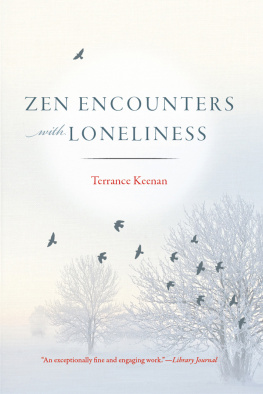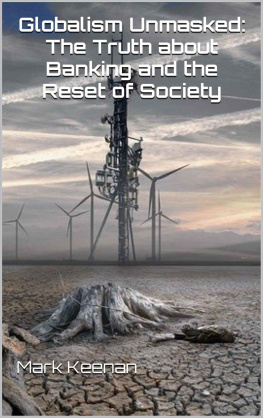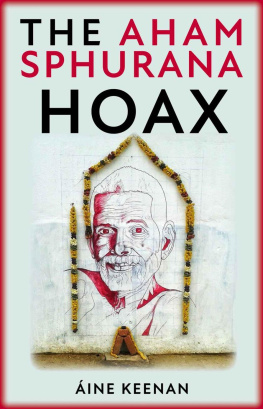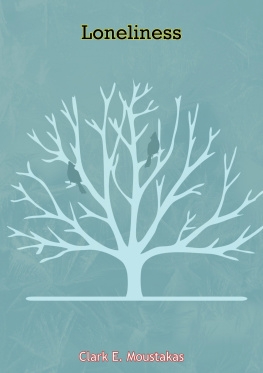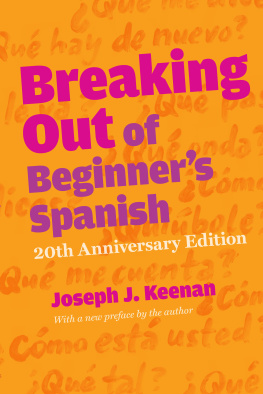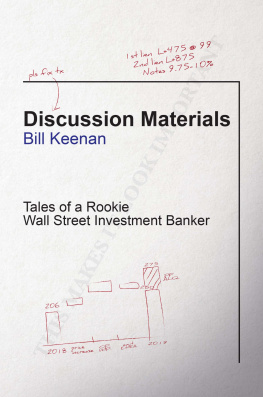ZEN ENCOUNTERS WITH LONELINESS

For
Jane, Bryna, and Conor
CONTENTS
I wish to thank my editor, Andy Francis, who was willing to take on a new edition of this book, for his always sensitive and mindful support throughout; my wife, Jane, for her meticulous reading and loving support; my son, Conor, for his moral support and deep insight; and my daughter, Bryna, for her open-hearted understanding. My gratitude goes also to my teachers, the Venerable Eido Shimano Roshi and the Venerable Roko Shinge Roshi, for permission to quote from their book, Endless Vow: The Zen Path of Soen Nakagawa, for their rigorous support of my practice, and for their profound teaching. May true Dharma continue.
Many of the poems that appear throughout the prose portions of Zen Encounters with Loneliness were composed in concert with other poems and are meant to be read alongside of each other. All of the poems are presented together with their counterparts under the heading Selected Poems at the end of the book, so they may be read as they were intended to be.
Youre in my blood like holy wine.
You taste so bitter and so sweet.
JONI MITCHELL
Reality is the last nostalgia. We look upon it with hopeful sweetness, yet we grip it with the iron tenacity of desperation brought on by the terrifying accident of life. Purpose. Meaning. Certainty. Truth. Or perhaps the other viewEmptiness, Chaos, Doubt, Chance. However we seek to understand reality, whether through the scientific method, reason, religion, mysticism, philosophy, whatever perspective the conditions of our being compel us to use, we nevertheless wish reality to be so.
As one approaches the remote monastery Dai Bosatsu Zendo Kongo-ji, where I go for training, coming up the two mile long drive from the gatehouse through deep deciduous forest, just before one crosses the little plank bridge by the lake and sees the main buildings, there is the entrance to the Sangha Meadow, or cemetery. Here where deer browse lie the ashes of students of Buddhism. What did their study bring them? At the entrance there is a small Jizo Bodhisattva statue and a large stone slab. Cut into the stone is the calligraphic figure of 
 d or Way. Below this, much smaller, the words of a poem by Basho in English. I stood on foot before it, my first visit one autumn a decade ago, as my father lay dying in a state far away, remote from all my experience. What was I doing here? What were these fictions called memories? What did my fathers death mean? What was his life? Was it real in any way that made sense? What was my life? Who was I, anyway? Leaves scattered across the dirt road and brushed the stone. These were Bashos words:
d or Way. Below this, much smaller, the words of a poem by Basho in English. I stood on foot before it, my first visit one autumn a decade ago, as my father lay dying in a state far away, remote from all my experience. What was I doing here? What were these fictions called memories? What did my fathers death mean? What was his life? Was it real in any way that made sense? What was my life? Who was I, anyway? Leaves scattered across the dirt road and brushed the stone. These were Bashos words:
Along this Way
goes no one,
this autumn evening.
No one. Me. I empty out. For a moment there are no questions and my sense of identity, my self-absorption, scatters with the leaves. For most of us our closest companion is us. To each of us it is we who are most real to ourselves. It is almost inconceivable that we would willingly lose this companion with whom, through whom, we think we experience the world. That is how it is for me too, usually. Long ago, however, as a small boy, I had intimations that there was something more behind who I thought I was. I had no words for it. No one I knew had any words for itthis profound sense there was no one home. Not emptiness exactly, but not individuality either. My experience of it was deep but erratic. Most of the time I did not experience its immediacy, and these were very lonely times because I found I could talk to no one about it. What would a child know about such things?
In one way or another I have spent my life trying to understand this no one within. This book is in part about that struggle. Somewhere in my early adulthood, well before I came to Zen practice, I tagged it with the name St. Nadie (nah-dee-ay), a Spanish word meaning no one. Looking back, I am sure I used Saint as an unconscious comment on the Saints of my Irish Catholic childhoodbeings of unattainable sanctity, watching over us all the time. It has stuck in my consciousness, sacred and secret, a kind of non-guardian angel. St. Nadie. No one. No one goes this Way... though always present, usually hidden, older and more real than myself.
And this reality I experience? We think we can escape into reality from dream and fantasy, that there, wherever that is, is where we will find surety, harmony, sense, knowledge that this is true. It has been suggested that this utopian need to piece together the fragments of experience into a restored whole is the central strand of Western thought. As science has come to subsume philosophical thought, we assume we know the right questions and that for each there is an answer that is correct. How easy it is to ignore that we are ourselves at the center of this asking, and that all means for asking and answering come from us. We pretend the truth of something is true in spite of us, but we are only interested in knowable things, including the truth. The arrogance of this position, that unknowable answers are not genuine, has always seemed sad and peculiar to me, and a bit incoherent.
A friend of mine, a scientist and logician by trade, reminded me that science is a method of knowledge by description and that, on the whole, scientists think that the terms, the language we use to ask questions and formulate answers, that the terms and mathematics of science mean this or that. They dont, he said, They never did.... There is the math. There is the world. And there is the structural correspondence. Thats it. He recognizes this is a conditional way of knowing and a limited one. He says that terms of math and logic are inadequate to communicate literal experience, or what he calls knowledge by acquaintance (after, I suppose, Bertrand Russell). He suggests poetry and art are all we have to communicate what we know by experience.
So at best we have descriptive models of bits and pieces dependent upon our ability to identify exactlya conditional perspective. I believe there is a sneaking suspicion among us that, handy as these models are, they are not enough. The language of poetry, the act of poetry, is maddening and wonderfuluncertain. There is a plurality of possibilityand impossibility. For me, poetry has become the voice of my inner no one, of St. Nadie. Recognizing the differences in the ways of knowing is not to give one ascendancy over another but to recognize that understanding the reality of human experience is not satisfied by either or both. There is no one thread, no complex whole, no real answer in the way we want the real to be.
Our history of dissatisfaction is getting pretty long. The duality inherent in these ways of knowing continues to feed our persistence. We demand defining judgment to affirm ourselves, but it has never been forthcoming into the conditional way we experience. At the same time we know in a literal way that we are not visitors. It is the paradox of being and the burden of mortality. This is it. We are afraid.
Unknown answers
scatter empty roads,
brittle leaf music.



